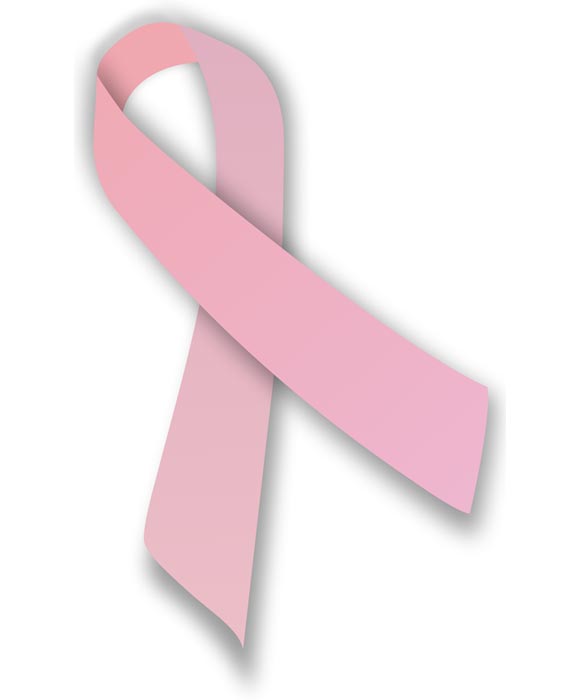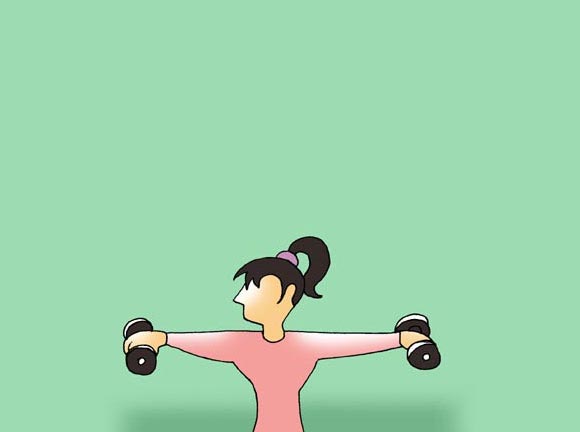 | « Back to article | Print this article |
9 biggest health risks women face
Dr Purvish Parikh, Medical Advisor for medico.in lists out the greatest health risks that hit women and how YOU can avoid being a victim.
Women are different than men in a number of ways, and that includes their ability to fight diseases. Because of hormones, body composition, and plenty of other factors, women are the targets of these 9 health conditions. Read on as we explain the risks and give you the information you need to stay healthy.
Breast Cancer
Breast cancer comprises up to 16% of all female cancers, making it the most common cancer of women in the world. Though we know that certain genetic and reproductive factors can put you at risk for breast cancer, there is still a lot of uncertainty surrounding the causes of breast cancer.
What you can do about it:
Maintain a healthy weight. Obesity and lack of physical activity have been shown to increase your risk of breast cancer, and since you can't control your genetic makeup, it's important to keep your body healthy in other ways.
Autoimmune Diseases
Autoimmune diseases like lupus and multiple sclerosis occur when the immune system accidentally attacks healthy cells in the body. Unfortunately these diseases target women 75 per cent of the time. It's not entirely clear why women are more likely to be diagnosed, but it's possibly due to the fact that women often have stronger immune systems.
What you can do about it:
Don't ignore seemingly unimportant symptoms. Fatigue is a common symptom of many autoimmune diseases. If you're feeling tired even though you've gotten plenty of sleep, discuss your fatigue with your doctor.
Illustration: Uttam Ghosh
Stroke
Strokes kill twice as many women each year as breast cancer, yet women seem to ignore the risks. Taking birth control bills and using Hormone Replacement Therapy (HRT) are risk factors unique to women.
What you can do about it:
Be wary of migraines. Maintaining a healthy weight, not smoking, and being physically active all help to reduce your risk of stroke, but recent research shows that women who had a migraine with aura (changes in sight and senses) more than once a week were four times more likely to have a stroke! Occasional migraines can be harmless, but if they're frequent, speak to your doctor.
Chronic Obstructive Pulmonary Disease (COPD)
COPD is a leading cause of death, and, in 2000, the number of women dying from COPD surpassed the number of men. Even scarier, women are more likely to be diagnosed even if they are nonsmokers, which suggest that genetic factors may put women at a disadvantage.
What you can do about it:
Stop smoking. Exposure to cigarette smoke is the biggest and most common risk factor of COPD. Though it's not the only cause, it's one that's easy to avoid. Chemical fumes and other air pollutants may also put you at risk, so consider wearing protective gear if you are consistently exposed.
Type 2 Diabetes
Diabetes rates are reaching record highs, and women are more likely than men to be diagnosed with type 2 diabetes after 45. To make things worse, women with diabetes are also more likely to have a heart attack than men.
What you can do about it:
Eat your vegetables (and fruits). Your diet is a huge predictor of whether you'll get diabetes or not. Incorporating low-calorie, low-fat fruits and vegetables will help you stay slim, and studies show it may even help prevent diabetes.
Migraine headaches
Of the people who suffer from migraines, approximately 75% of them are women. Because women are often more affected, doctors believe that hormones, specifically estrogen, may be the cause.
What you can do about it:
Get a good night's sleep. With so many other migraine triggers, such as stress, hormones, and certain foods, patients often forget about the importance of sleep. Studies show that poor sleep habits and sleep disorders may cause migraines, and, likewise, migraines may cause poor sleep habits. If you have trouble sleeping and notice an increase in migraines, talk to your doctor.
High Blood Pressure
Though high blood pressure is thought to be a problem for men, after 65, women are more likely to have the disease. Some healthy women also develop hypertension during pregnancy.
What you can do about it:
Limit salt and get more potassium. Excess salt causes your body to retain fluid, which puts more pressure on blood vessels. Potassium eases blood pressure by balancing out sodium in your cells. Avoid adding salt to your food, limit salty processed foods, and eat potassium-rich foods like potatoes, spinach, peas, bananas, and oranges.
Osteoporosis
Women, especially those with a family history of the condition, are more likely than men to develop this disease that causes a loss of bone density. Estrogen protects bones, and as women age, their estrogen levels drop, putting them at risk for osteoporosis.
What you can do about it
Stay active. Regular exercise reduces the risk of bone fractures, improves muscle strength, and slows bone loss. Weight-bearing exercises, like walking, lifting weights, and climbing stairs are especially important in developing strong bones.
Illustration: Uttam Ghosh
Dementia
Women are more likely to be diagnosed with dementia than men. Though experts are still unsure what causes dementia, studies show that high levels of a hormone called adiponectin, excessive belly fat, and disrupted sleep cycles, may be all be part of the cause.
What you can do about it
Be social. Studies show that having an active social life may prevent Alzheimer's. Visiting friends often and scheduling regular events with your family may boost your brainpower and prevent cognitive decline.









